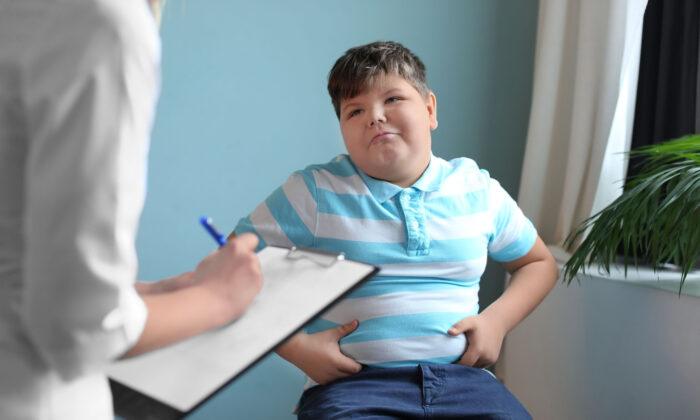Codependents often have trouble being open, honest and assertive with intimate partners says Darlene Lancer, an author and marriage and family therapist. In trying to manage, control and manipulate others, often by “people pleasing” or giving advice, codependents can “turn themselves into pretzels,” says Lancer. Now, in her latest book, Conquering Shame and Codependency: 8 Steps to Freeing the True You, Lancer addresses the role of shame and especially childhood shame experiences in codependency.
Martha Rosenberg: Your recent book about shame and codependency brings to mind popular books written by John Bradshaw on the topics 25 years ago, some of which even became PBS specials. What new perspectives does your book bring to the topic?
Darlene Lancer: Bradshaw and I certainly agree that shame and codependency are caused by emotional abandonment in childhood but my book goes into greater depth about how they weave their way through the symptoms of codependency and relationship problems in lives of adults. It also provides steps for healing, drawing on the work of many analysts and therapists. The way that shame and codependency are regarded in healing communities has also changed since Bradshaw’s time because of a great focus on trauma and healing from PTSD. The work of Brene Brown has also brought new awareness to the issue of shame.
Martha Rosenberg: What are some of the ways children experience and incorporate shame during their childhoods?
Darlene Lancer: Parents can shame their children’s needs, feelings and even interests. For example, if a child is told not to cry and “you’re a big boy now,” his need for comfort when he is in distress will be shamed. A PBS program showed how different mothers of distressed 2-year-olds reacted. Some did not hold or even look at their children, probably because they were not comforted themselves as children. If a child displays an interest in sports or culture or music and the parents do not approve of it, his interests can be shamed.
Martha Rosenberg: What about parents who tell their kids, especially boys, “I'll give you something to cry about?”
Darlene Lancer: Yes, certainly telling a child he shouldn’t feel certain emotions and that there is no justification for them like “don’t feel sad” or “you shouldn’t feel angry,” produces shame. So do characterizations like “I can’t believe you got a C on that paper,” “what kind of a man are you?” But too much praise can also bring shame because the expectations are so high, the child can become afraid of failure. If a child does experience failure, parents might try diminish it by encouraging the child to ignore the feelings rather than validate the feelings of failure for the child, who then becomes ashamed of shame and doesn’t learn to cope with failure. I have had clients who received no comments from a parent at all--not positive or negative which can also be shaming.
Martha Rosenberg: If parents tell a child “good boy” or “good girl” too frequently, couldn’t that also convey that the child is being judged?
Darlene Lancer: Yes. So-called global statements have started to be questioned, too, as not necessarily positive; some researchers are suggesting that instead of praising the results of a child’s actions, their effort should be praised.
Martha Rosenberg: Why are these parental pronouncements so important?
Darlene Lancer: When parents empathically “match” their children’s emotions, they’re helping them to build an individual self. If the child’s feelings aren’t mirrored, the child will feel invisible and thinks “what is wrong with me for feeling this way.” Family settings that are devoid of feelings are sometimes called “anaerobic psychological milieus.” Often clients tell me they could not pinpoint anything wrong in their childhood but they never felt in an emotional connection with their parents and had an emptiness inside.
Martha Rosenberg: In Conquering Shame and Codependency you discuss the difference between shame and guilt which can often be blurred as concepts.
Darlene Lancer: Guilt occurs when someone realizes that something he did that had an impact on someone else. In Twelve Step groups, there is an opportunity to relieve the guilt through making amends. It can actually be a good thing. Shame, on the other hand, is about the feeling of being a failure and someone’s identity. Unlike guilt, it is irredeemable, can’t be fixed with amends and drives people into further isolation. Guilt builds empathy because it makes a person to wonder, “what did I do to that person” whereas shame makes a person wonder, “what is that person thinking about me”?” Shame causes low self-esteem and anxiety which drive addictions like alcoholism and eating disorders and other behaviors.
Martha Rosenberg: You have said that until someone can quit an addiction like drug use, they can’t address underlying codependency.
Darlene Lancer: Yes denial is usually very strong, and people often use their addiction to a drug or process before they can deal with the other issues of codependency, like control, intimacy issues, denial of feelings and needs, and shame.
Martha Rosenberg: You have also said that codependency is a progressive disease like alcoholism that leads to physical symptoms including chronic pain and final feelings of being “dead” inside. Can you describe some of your clients’ recoveries from shame and codependency?
Darlene Lancer: One of my clients was married to someone who was very verbally abusive to her. He was clever, manipulative and kept her in a “one down” position. She tolerated the abuse because it resonated with feelings of worthlessness and weakness she had formed about herself when she was growing up. Under a barrage of criticism, she would just freeze and not be able to find words to defend herself. She believed her own needs were selfish.
Martha Rosenberg: Certainly that kind of relationship used to be shown a lot on TV--women like Edith Bunker on All in the Family!
Darlene Lancer: Well, in therapy, this woman learned to be more assertive and was gradually able to speak up to her husband. She was able to set boundaries and ask for what she needed. Over time, their whole relationship changed. The husband began to treat her with respect, and they achieved greater intimacy. In other cases, though, clients have had to accept that they could not get their needs met in a particular relationship. One client I worked with was married to a narcissist and he eventually decided divorce was best for them. I have also seen clients change and thrive in their careers after they address their codependence.
Martha Rosenberg: Your book gives eight steps for people to free themselves from shame and codependency: 1) Find Your True Self 2) Uncover Your Shame 3) Find Your Shame’s Roots 4) Disarm Your Shame 5) Confront Your Shame 6) Share Your Shame 7) Build Your Self-Esteem and 8) Love Yourself. Certainly sharing shame with others, whether a therapist or Twelve Step groups, is an example of the truism that “you are only as sick as your secrets.” But can you talk a little about the other steps?
Darlene Lancer: Most people with shame, codependency, and denial have an “inner critic” that tells them things like “you look horrible in that outfit” or “you never should have called him.” Shameful feelings about not being good enough or fitting in and anxiety about being exposed also drive people toward perfectionism. Uncovering and confronting shame, trying to find its roots, and challenging the false underlying beliefs that they have help them disarm their inner critic and disarm their shame. It also may require healing the effects of trauma from their childhood.
Martha Rosenberg: You have also said that recovery from shame and codependency becomes easier as someone goes along.
Darlene Lancer: Yes. As we see with people in other recovery programs, a positive feedback loop develops. As people change their behaviors and learn to love and accept themselves, it creates more changed behaviors and positive feelings. They begin to gain respect and the love and empathy for themselves that they lacked.
Darlene Lancer is a licensed marriage and family therapist who has lectured widely. Author of several books and articles in professional journals, her most recent book has just been published by Hazelden.





